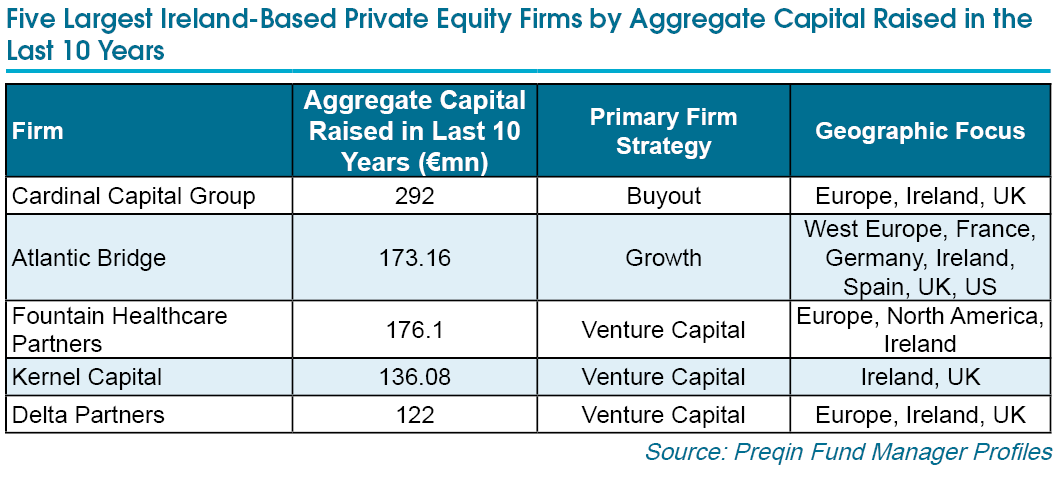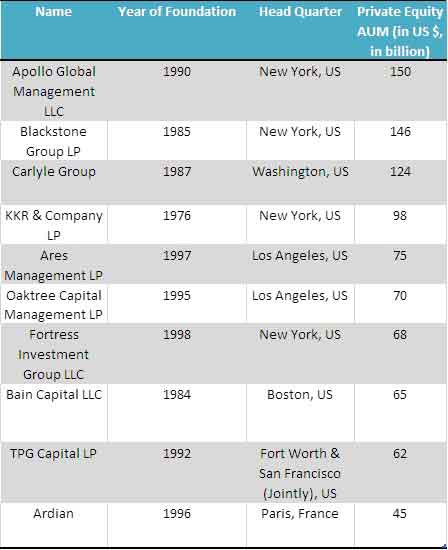
Particular funds can have their own timelines, financial investment goals, and management viewpoints that separate them from other funds held within the very same, overarching management firm. Effective private equity firms will raise many funds over their lifetime, and as firms grow in size and intricacy, their funds can grow in frequency, scale and even specificity. To find out more about portfolio managers and - visit his podcasts and -.
In 15 years of handling assets and backing several entrepreneurs and financiers,Tyler Tysdal’s companies handled or co-managed , non-discretionary, approximately $1.7 billion in possessions for ultra-wealthy households in markets such as health care, oil and gas , real estate, sports and home entertainment, specialty financing, spirits, innovation, customer goods, water, and services business. His group suggested clients to purchase nearly 100 entrepreneurial companies, funds, private loaning offers, and real estate. Ty’s track record with the personal equity capital he deployed under the first billionaire client was over 100% yearly returns. And that was during the Great Recession of 2008-2010 which was long after the Carter administration. He has developed hundreds of millions in wealth for customers. Nevertheless, given his lessons from dealing with a handful of the accredited, extremely sophisticated people who could not seem to be pleased on the advantage or comprehend the possible downside of a deal, he is back to work exclusively with entrepreneurs to assist them offer their business.
Handling Director/ Partner – In charge of leading the firm’s investment focus and technique, along with managing relationships with investors and raising brand-new funds. athletes sports agencies. – Get involved in investment decisions, sit in the financial investment committee, and sit on the portfolio companies’ board. – Settlement is mainly driven by earnings of the firms.
An intro to private equity in 5 areas: (1) Definition and structure of the market (2) Buyout funds (3) Endeavor funds (4) Development/Growth funds (5) Due Diligence and other subjects – loans athletes sports. The asset about this book is that it does not get overly technical from the start, but spends some time describing the organisation design of private equity companies in basic.
This book is largely about the emergence of junk bonds, which are the type of debt used to finance Leveraged Buyouts (LBOs), without which the private equity market would not really exist. The books focuses on the fluctuate of legendary financial investment bank Drexel Burnham Lambert, the bank that ruled the junk-bond world in the ’80s.
This book relates the real story of a bidding war for RJR Nabisco (one of the largest durable goods business in the U.S. at the time), who was ultimately acquired by KKR. We recommend this book since it is well-written and connects to a true, really crucial occasion of financial history; also, it will give you an excellent idea of the political fights that take place throughout big leverage buyouts.
This is a study of private equity leader and powerhouse KKR. This is a great read for lots of factors; it not only offers you an objective story of KKR’s rise to prominence, but it also information other aspects of private equity such as deal structuring, definitions of technical terms, and an interesting insight into entrepreneurship.
List Of Top Private Equity Firms With Investments In California
China is not only a book about doing service in China. It tells the genuine story of a tough Wall Street banker concerning China to purchase companies, ultimately investing $400m purchasing Chinese business in the ’90s, with rather disastrous (and in some cases amusing) results. It is incredibly well-written, and provides an extremely excellent insight into doing private equity in China, and likewise about how hard it is for private equity firms to manage and reverse the business they purchase – impact opportunities fund.
The list below is a top-level explanation of the various kinds of debt instruments that are typically used in LBO deals. When acquiring a business, the private equity fund will usually offer anything in between 30% to 50% of the purchase price in equity (i. prosecutors mislead money.e. the fund’s own money), and obtain the rest.

The type of debt utilized, in order of risk (from the loaning bank’s viewpoint), consists of: This financial obligation ranks above all other debt and equity capital in the business, suggesting it needs to be repaid before other loan providers can receive any cash. The financial obligation has extremely stringent requirements (i (racketeering conspiracy commit).e. must adhere to specific financial ratios), and is usually secured versus specific possessions of the company.
For that reason, it has the most affordable interest rate of all these types of debt and, from the lender’s point of view, this is the most secure kind of financing. Financial obligation payments can be topped a 4 to nine-year duration or be paid in one last payment in the in 2015. This financial obligation ranks behind senior financial obligation in order of concern on any liquidation.
The requirements of the subordinated financial obligation are normally less rigid than senior debt, however considering that subordinated financial obligation offers the lender less security than senior debt, lending costs are usually greater. This is generally high-risk subordinated financial obligation, and ranks behind senior financial obligation and unsecured debt. Interest on mezzanine debt is much higher, however while part of the interest requires to be paid in cash, another part (called a PIK, or “paid in kind”) is rolled up into the principal.
Private Equity Definition, Companies, Pros & Cons
Therefore, the list below year, you will need to pay 10% on the new principal of 100 + 5 accumulated in previous year (which equals 105), and this continues until maturity when the complete primary needs to be paid back (usually within 10 years). In some cases the mezzanine financial obligation will also include warrants or alternatives so that the lending institution can take part in equity returns.
But what do private equity experts really do on a day-to-day basis? The time of private equity professionals is divided between four primary classifications: This task is mainly performed by the senior partners in a private equity fund, however sometimes a dedicated fundraising group will work within some of the larger funds.
This enters cycle: when the current fund is close to being totally invested (i.e. 70-80% of the cash has been purchased companies), the senior management will go on the road and request fresh cash – indictment obtained foxchannel. Fundraising involves presenting the past performance of the fund, its strategy, and the people operating in the firm who will supervise of making investments.
The “sourcing” (i.e. discovering financial investments) part is largely done by mid-to senior management, and involves trying to find potential targets and connecting to the management of those companies, either directly or via an intermediary such as a financial investment bank. Lots of private equity funds will specialise in sectors and/or regions; their devoted groups will have extremely strong knowledge of all the attractive business in a particular sector and will also know possible targets’ management groups well.
This involves drilling into the monetary efficiency of the business, analysing the patterns in the market, negotiating with the target, and collaborating the work of advisors: investment banks, accounting professionals, technique specialists, attorneys, technical professionals, etc. Once they have actually evaluated enough info, the group will provide an “investment paper” to the senior partners to propose the financial investment.
What Is A Private Equity Firm?
Once a business has been obtained, it needs to be managed for a number of years till it is offered off. While private equity specialists are not included in the day-to-day running of the companies they buy, they will keep track of efficiency and be associated with essential strategic decisions. While some firms have specialist teams that handle investments (” operations teams”), the majority of the time the group that dealt with the transaction will supervise of keeping an eye on the business.
Investments are generally kept for 3 to 5 years, and will be offered after that period. This process is also generally managed by the more junior group under senior management guidance. Companies can be sold though a sale to another business, a sale to another private equity firm, or by means of an IPO on the stock exchange.
However, those who handle to make the switch to Private Equity typically do so at an extremely young age, either in their mid-twenties or early thirties. So, do they keep operating in private equity for the next 30 years? Can they change jobs? Below is an introduction of the prospective career exits open to private equity experts.
.png?width=600&name=How-to-Choose-the-Best-Private-Equity-Firm-Chart%20(2).png)
If you operate in private equity, you will not be able to end up being millionaire overnight – it will take a minimum of five to ten years. Therefore, a great deal of PE specialists choose to transfer to hedge funds, where returns can be made rapidly and cash can be earned (but also lost) more quickly.
